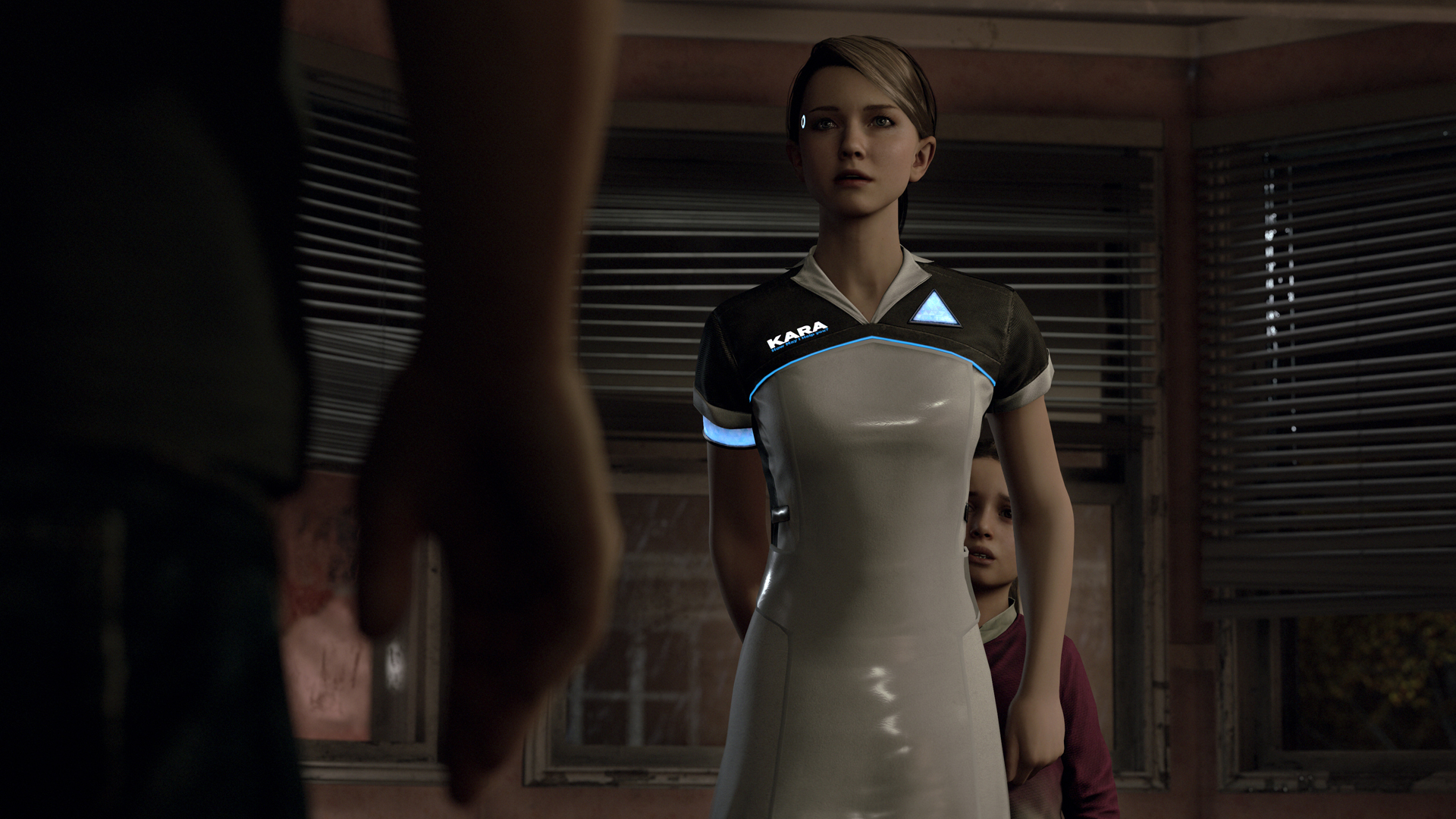Detroit: Become Human hands-on reveals a smarter, more emotional game than you might think
No, really, I felt some genuine emotions while playing the first three hours of Detroit: Become Human
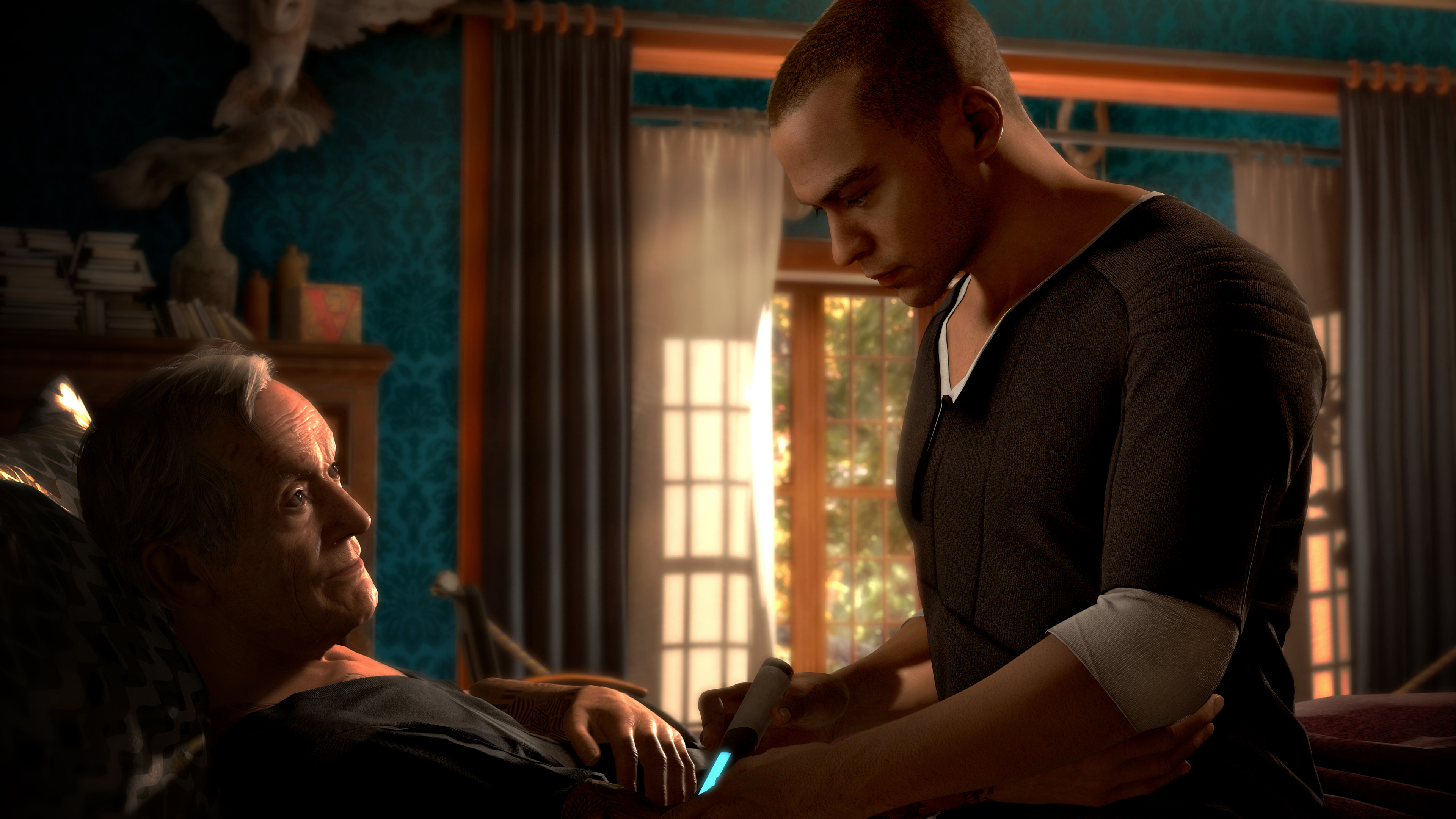
There’s something off about Detroit: Become Human’s androids. For once, though, that’s the point. It feels like we’re handing out the figurative ‘Best Looking PlayStation Game’ award every week right now, but it’s hard to overstate just how incredible Detroit looks, especially when it comes to character models. The problem facing the team at Quantic Dream is fast becoming a case of how do we make our androids less than perfect, rather than perfect.
That’s a nice problem to have when it comes to realism (just to note - all the images you see in this article are in-game AND representative of how it actually looks), but this level of visual fidelity has been hard earned. Four years in development, over a year of mo-cap shooting, a selection of A-list actors, and a team of 180+ full-time creators - that’s the price paid for such quality and polish. And it’d all be for nothing if the underlying world and story were unbelievable or artificial. After playing about three hours from the opening of the game, I’m pleased to report that the substance seems to match the style; that Detroit has shaken off the silliness and forced emotions of its predecessors (that’s Beyond: Two Souls and Heavy Rain) to present three alarmingly relatable stories, interwoven inside a world that feels real, rather than a collection of cardboard sets.
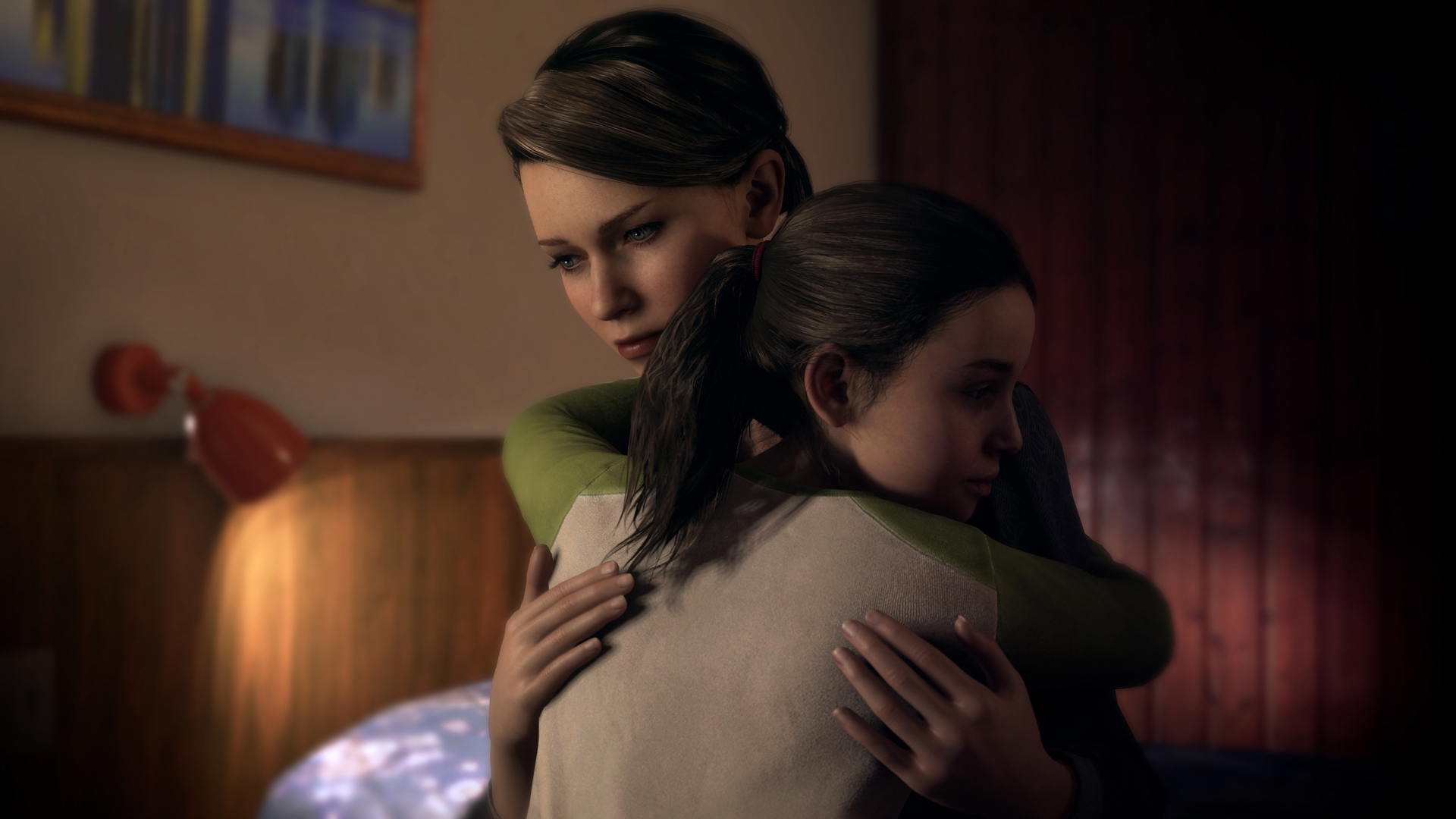
During Detroit: Become Human you play as three main characters: Markus, Kara, and Connor. All androids, they each experience humanity in different ways, but the theme that initially links them is that they’re involved with the Deviancy Crisis. The year is 2038, and humanity has (a few years previous) developed androids to help do all the undesirable jobs, to tend children, and to be ‘perfect’ romantic partners. The Deviancy Crisis relates to what happens when these gentle servants begin to question the nature of their being and break their programming.
Markus is android to a liberal artist, who treats him like a son, encouraging creativity and individuality - a wonderful subversion of the fact that Markus looks like Generic Action Hero Trope #7. Kara, conversely, is slave to a single father, who drinks, knocks his daughter around, and deals drugs. They’re polar opposites on the social spectrum - occasionally comically so - but despite their conspicuous extremity, hold together as explorations of moral and philosophical statements, if not necessarily relatable characters in their own right. In other words, we probably don’t actually know anyone so saintly or villainous in our own lives - perhaps some people approaching it - but what they represent in terms of Detroit’s core themes are more important.
One of their own
Thirdly, Connor is an enhanced android, designed specifically to hunt down defective, deviant androids. He’s a Blade Runner with less charm, but a wider range of skills, paired up with hard-drinking detective Hank (Clancy Brown), who has a distinct dislike for androids. The opening hours of the game deal with the awakening of these characters, and the events that trigger them to go beyond their normal behaviours. Equally, though, there’s a chance that you could just lose them as playable characters entirely… it’s very possible to die in the opening scenes. Although can you really die if you’re an android?
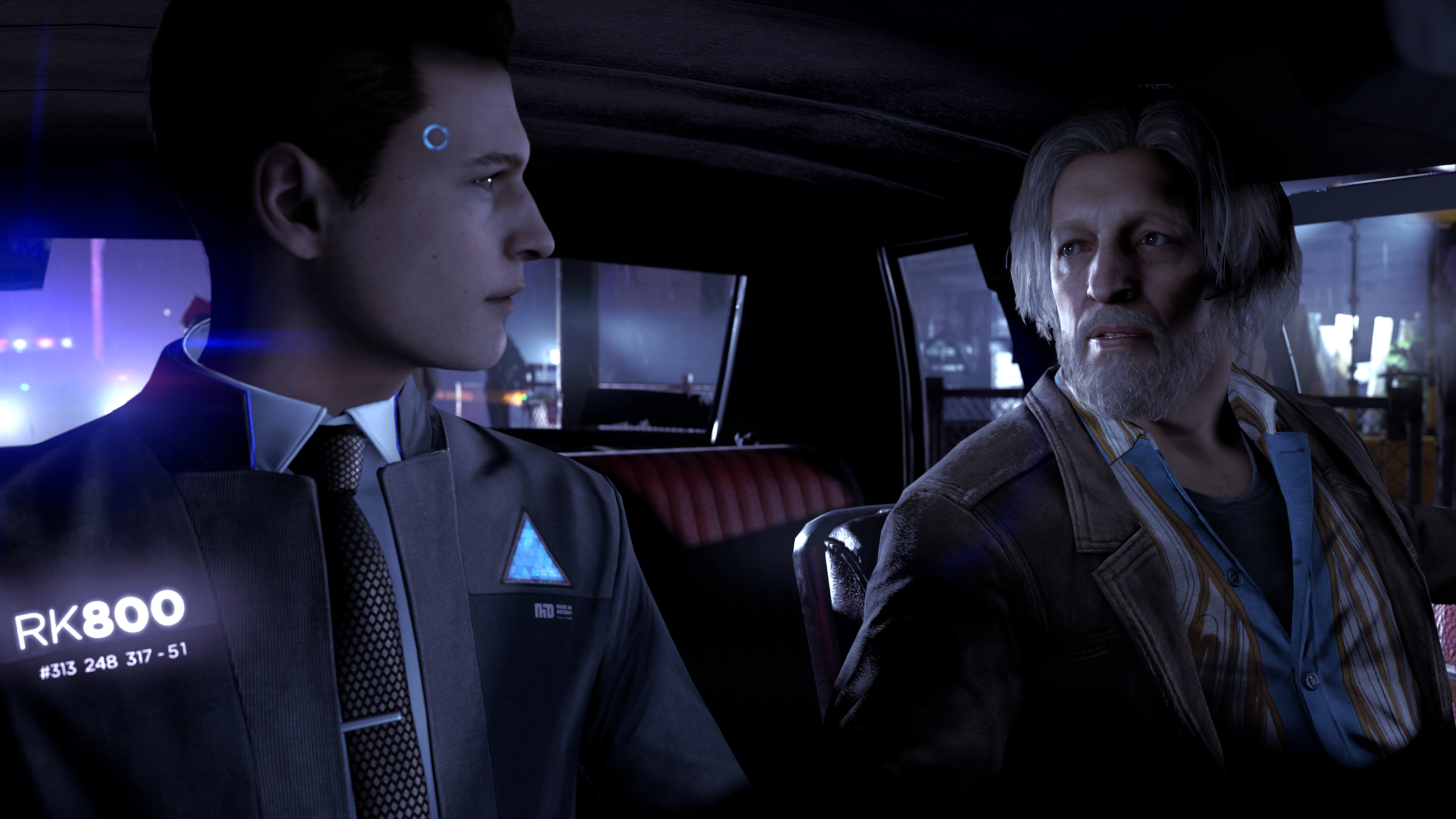
So far, so big empty marketing promises, right? We’ve heard about morality, branching narratives, and extreme realism before - especially in relation to Quantic Dream’s games. However fair or unfair you consider those accusations, there’s no doubt Detroit is a significant step towards fulfilling the studio’s lofty ambitions of telling not only a great interactive story, but one that offers meaningful choices and genuinely taxing moral decisions. Heck, you can even see all the available branching paths in the ‘results’ screen after every scene you play, where your decisions are catalogued mechanically, the other potential scenarios you may have seen tantalisingly greyed-out, ready to be discovered. On the one hand it’s a very heavy-handed way of the creator saying “Look, your decisions matter! We can prove it!”, but on the other it’s a neat way to encourage curiosity and repeat play. What would happen if I’d been more reckless? If I hadn’t picked up the gun - stuff like that.
Mercifully, some branches are done by context, rather than being offered a simple choice - one scene where Markus is picking up paint from the city might see him harassed by anti-android protestors, depending on whether you choose to walk in their eye-line. Equally, though, much of the choice comes from how thoroughly you explore the world. Holding down R2 scans the environment for objects to interact with, while L1 draws your eye to nearby points of interest. At times it feels overly gameified, especially in the opening scene where your chance of rescuing a hostage as Connor is literally represented as a number in the top left of the screen.
Weekly digests, tales from the communities you love, and more
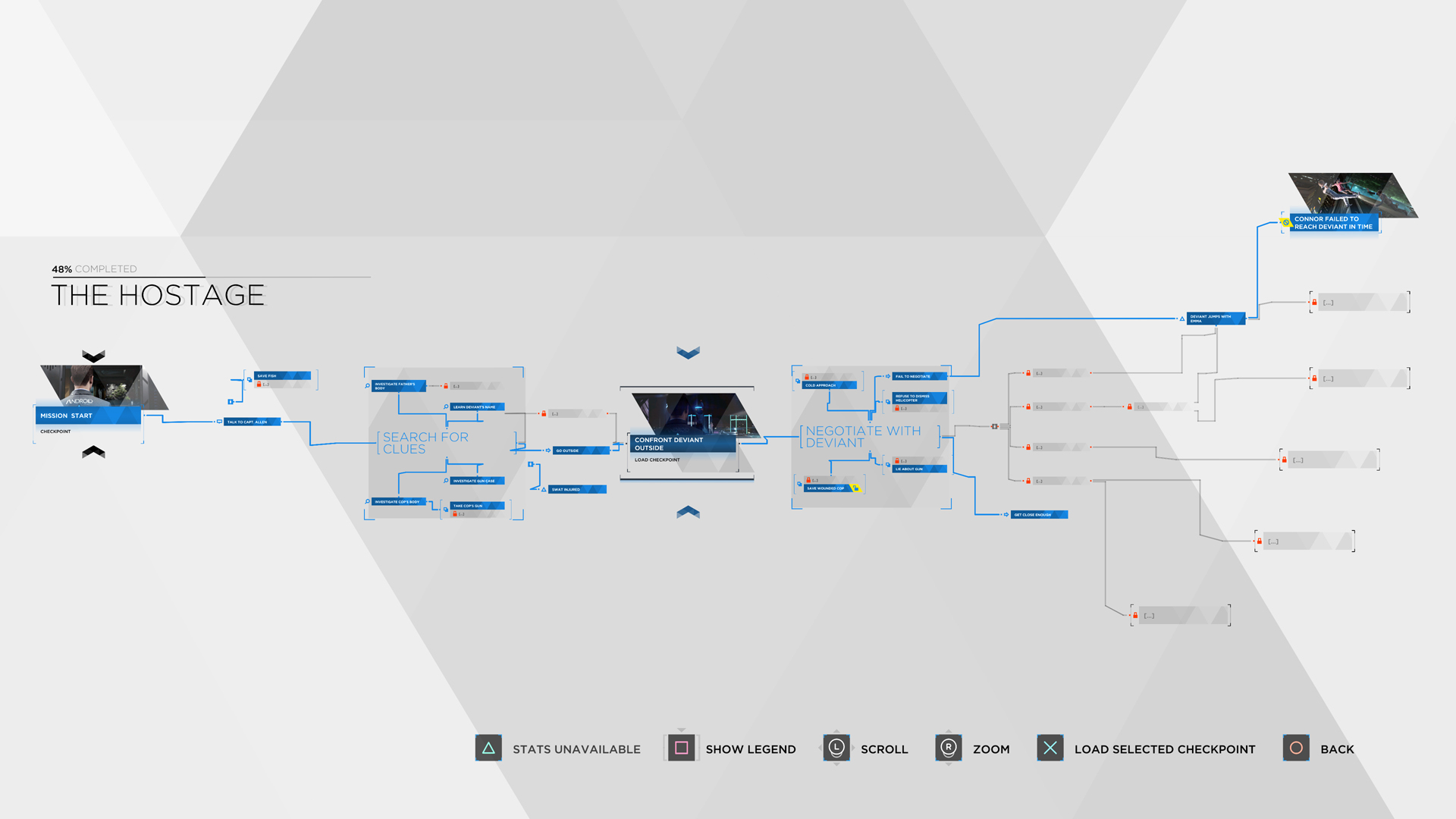
In the moment, though, all the artifice of the situation seems to fade if you’re willing to commit to the story and the performances. Carl (played by Lance Henriksen), who owns Markus, is alarmingly compassionate and fragile, but the tenderness with which his android cares for him is striking. Yet one line, where Carl - aging and frail - implores the buff, strapping Markus to try to learn to become independent because “He won’t always be around to protect him” does a beautiful job of subverting the relationship. The weak old man is the only reason Markus exists, and the younger, infallible character is very much in his hands.
Similarly, we see Kara’s owner, Todd, as a true, almost comical vile villain. Drug dealer, abuser, lazy low-life… yet Detroit offers opportunities to explore the reasons behind his evil. The android who took his job, the guilt he feels for hitting his daughter, the wife who left him with parental duties, and the desperation that lead to his dealing. Few games attempt to explain or tackle the social issues that lead to crime and deplorable behaviour, but it’s so heartening that Detroit is attempting that. It’s too early to know how far it goes, but early signs are massively encouraging. And that’s a crucial point. Because when characters and scenarios are adequately explored, rather than remaining cardboard cut-outs of real life, this has a knock-on effect for the decisions you make and the choices you’re offered.
The big question
It isn’t necessarily the options you’re given in Detroit: Become Human… it’s the reasons you, as a player, opt to pick one or the other. And the more invested you are in the world - the more you believe it - the tougher those decisions become. The consequences come with more sting or gratification too.
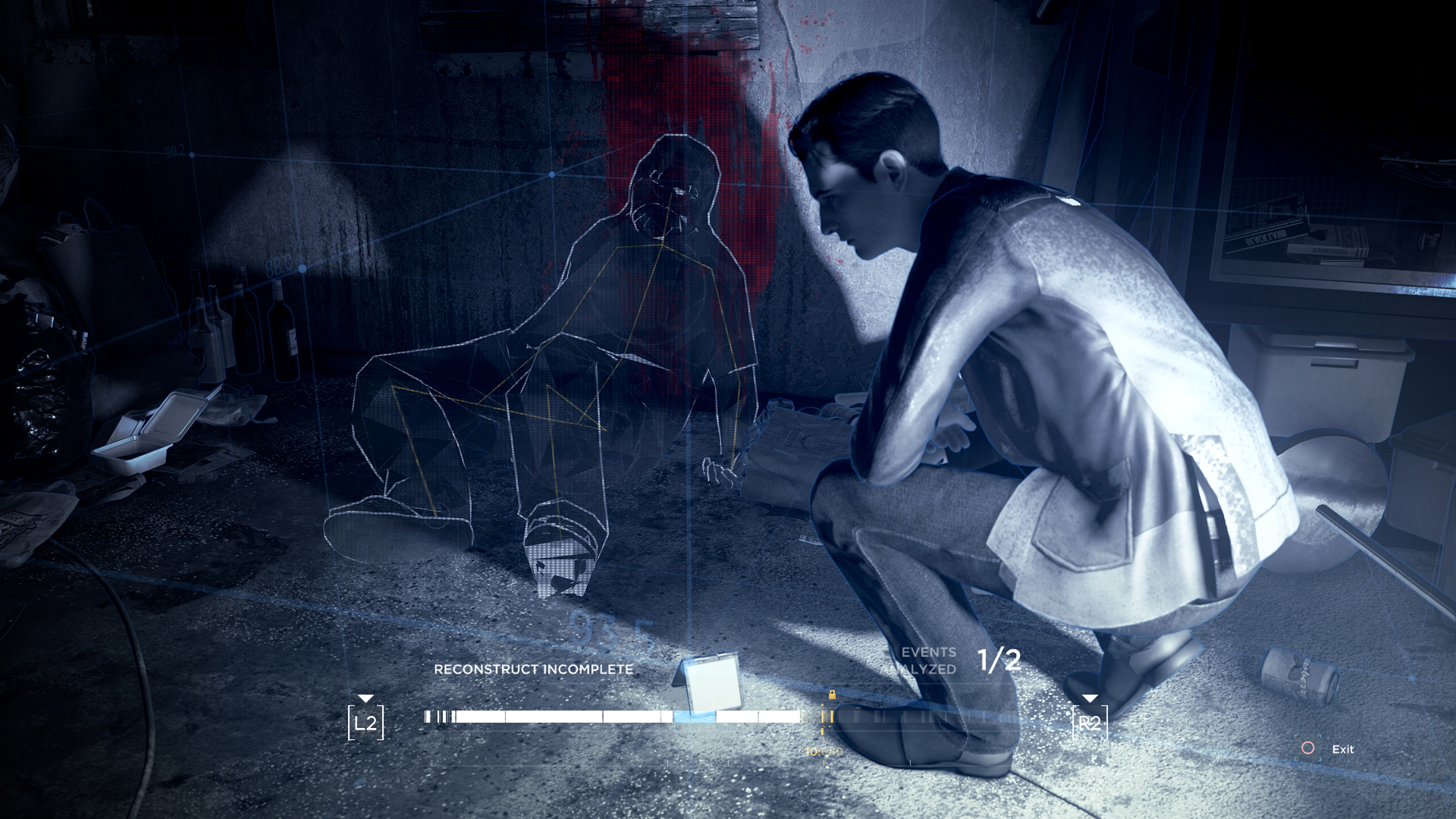
One scene sees Markus helping Carl with his latest artwork - a rather derivative painting on a giant canvass. During the scene, I give Carl my honest opinion on his art - it isn’t his best work - and he encourages Markus to paint something from the heart. It’s a delightful moment of bonding between the two… before Carl’s tearaway son returns to ask daddy for money. Leo, the son, is quickly dispatched without a dime, and who cares - he’s irresponsible and angry, a proper dick. So what if he feels displaced by Markus, who is the perfect son-substitute? He’s a jerk anyway. Does it really matter if that he couldn’t possibly live up to his father’s expectations with such unbeatable competition around? Hmmm, actually, I’m starting to feel a little uncomfortable here. And what happens when Leo comes back for the money and starts to get physical? What button do I press to win again?
The answer is: sometimes, in life, there is no win state. And regardless of the fact that Detroit: Become Human is both future fiction, and often a hyperbole of reality, it recognises the impossibility of some choices. It recognises that doing the right thing is sometimes doing the wrong thing, and vice versa. And it recognises that meaningful consequence is just as important as the decision itself. Much like its android characters, Detroit’s eerie layer of perfection hides a far smarter, more emotionally substantial game than first appears. And while it’s impossible - at this stage - for me to say this game achieves that lofty storytelling that Quantic so often aims for, the signs are very positive right now. One way or another, Detroit: Become Human will spark plenty of debate when it releases on 25 May.
Want more info on the latest PS4 games? Check out our upcoming PS4 games feature right now.

